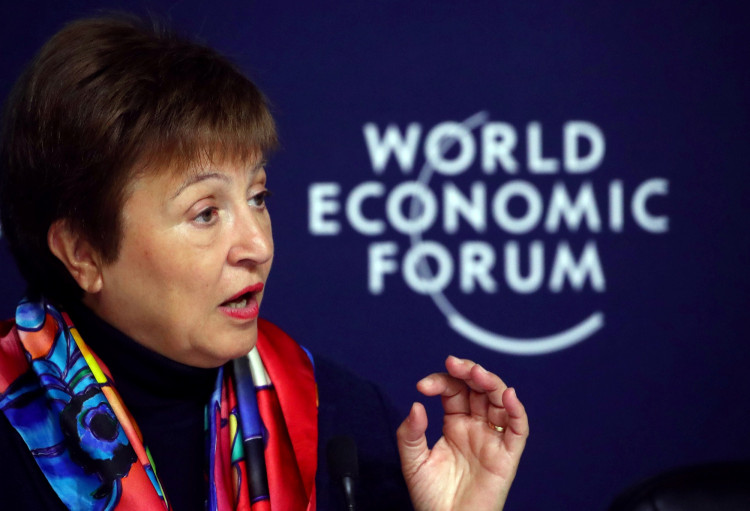COVID-19 has brought the world to a complete standstill and has triggered a global economic catastrophe like no other in history, said Kristalina Georgieva, managing director of the International Monetary Fund (IMF).
"Never in the history of the IMF have we witnessed the world economy come to a standstill," said Georgieva at the World Health Organization's headquarters in Geneva. Georgieva said this is "humanity's darkest hour, a big threat to the whole world and it requires from us to stand tall, be united and protect the most vulnerable of our citizens."
She said the IMF is working with the World Bank and other international financial institutions to ease the painful economic fallout from the outbreak. The disease has infected more than one million people in almost every country in the world. It's killed more than 59,000 people as of Saturday morning.
Georgieva said the IMF is encouraging central banks in developed countries to support developing countries and emerging markets. She said developing economies are the hardest hit by the pandemic and often have fewer resources to protect themselves from the huge economic fallout.
"We know that in many countries health systems are weak," she said. This situation is being worsened by a flight to safety by investors pulling their money out of vulnerable countries as the pandemic grows and spreads. She revealed some $90 billion in investments have fled emerging economies during the pandemic.
"This is way more than during the global financial crisis, and some countries are highly dependent on commodities exports," she pointed out. "With prices collapsing, they are hit yet again."
"Our main preoccupation in this crisis is to rapidly step up financing for countries, especially emerging markets, developing countries that are faced with very significant and growing needs," noted Georgieva.
She pointed out the IMF has $1 trillion available for lending. She declared the IMF is determined to use as much of it as necessary. She said more than 90 countries have applied for assistance. She asks countries that tap this huge funding source to pay doctors, nurses and other healthcare workers, and for other healthcare needs.
"We have never seen ever such a growing demand for emergency financing," according to Georgieva.
Back in February, Georgieva said COVID-19 will likely deduct 0.1% from global growth in 2020. The IMF in January projected global growth strengthening to 3.3% in 2020 from 2.9% in 2019.
Georgieva that since this prediction was made, COVID-19 has mightily disrupted business and economic activity in China, the factory of the world and the world's largest oil importer, and has spread faster in Europe and the Middle East.
At the time, she urged global cooperation in combating COVID-19, saying this is essential to containing the coronavirus and its economic impact. She also said it was time to recognize the potential risk posed by COVID-19 to fragile states and countries with weak healthcare systems.






